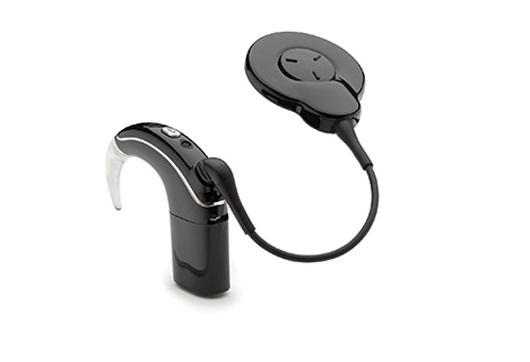Many individuals with hearing loss wear hearing aids. This technology often serves people well, optimizing their ability to communicate. However, for some, hearing aids are not enough. Even when hearing aids are in place, those with moderately severe hearing loss or worse may not be able to understand conversational speech clearly.

Recent research shows that more people may be candidates for cochlear implantation than previously realized. Now an adult is encouraged to pursue a cochlear implant candidacy evaluation if they have: (1) a pure tone average (500, 1000, and 2000 Hz thresholds) on their audiogram of 60 dB HL or greater, or (2) unaided word recognition scores of 60% or less.
If one is deemed a candidate, the cochlear implant allows the inner ear (i.e., cochlea) to be stimulated with sound again, in turn stimulating the entire auditory system. Although the cochlear implant surgical and activation process takes time and requires audiological rehabilitation, the outcomes are impressive. Individuals will not only detect sounds from their implant, but they may be able to localize where sound is coming from and eventually be able to follow conversations better in various situations.
When hearing aids are not enough, cochlear implantation may be an option. The audiologists at the Eckelmann-Taylor Speech and Hearing Clinic offer cochlear implant candidacy evaluations, post-surgical activation, and follow-up.

